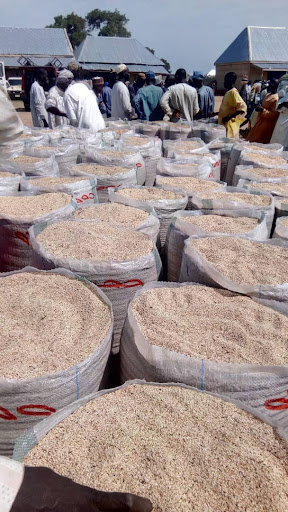The investment opportunities in Nigeria are huge in such a way that they require foreign inputs. One of such is exporting non-oil products which are also known as agricultural products.
These products include cocoa beans, sesame seeds, palm oil, ginger, cashew, cowpeas, soya beans, and groundnuts among others. The farmers of these products in the rural areas depend on exporting firms in the cities. Unfortunately, some of the exporters provide below the standard service.
The latest revelation made by an official of the Nigerian Export Promotion Council (NEPC) that most of the exports in Nigeria get rejected because of packaging which doesn’t meet the international standard is instructive. This should be an eye-opener for anyone or firm that wants to provide export service for the non-oil products in Nigeria with incredible potential in the international market.
To assist you in kicking starting an export service firm in Nigeria, we’ve compiled the important steps you want to venture into.
Choose Location
In deciding where your corporate office would be located, some of the factors that would assist you are: nearness to seaports, airports, and other means of transportation to the destination country.
Register Your Company
After you’ve decided to start a business in Nigeria, your next step is to do availability of company name search on the official portal of the Corporate Affairs Commission (CAC). It’s free. It’s to guide you and to know if a company name is already taken or not.
Get Export Licence
You need an export certification. This is done online on the official portal of the Nigeria Exporter Promotion Council (NEPC). You’re going to need the NEPC number in other points of registration. For instance when dealing with freight companies.
Obtain Phytosanitary Certificate
Since you will be handling a lot of unprocessed agricultural products for customers, you’re going to need to obtain a phytosanitary certificate from the Nigeria Agricultural Quarantine Service (NAQS). NAQS is Nigeria’s agricultural quarantine agency.
While you’re doing this, ensure to stay obtained about the prohibited products from Nigeria so that you don’t lose money on logistics.
Establish Local Agents
Even if you don’t speak the dialect of the local farmers, that should be a big issue because there are hundreds of agriculture science graduates or those who have passion for agriculture around who have direct contacts with local farmers and speak their languages, these are the people you can work with.
To get a hand on the reliable people who share your dream, you can speak with NEPC which provides advisory on an investment opportunity in the export value chain in Nigeria.
From time to time, your local agents will be the intermediary between you and the local farmers who have products.
Choose The Best Freight Company
In case you want to focus majorly on export service, then it becomes imperative to carefully choose a freight company that transports your clients’ products to the foreign destination where the agriculture products are needed.
Collate Suppliers Bank Accounts
For security reasons, it’s better to make an online transfer than to move cash around. As such, tell your agents to collate the bank account details of the farmers through which payments are made. Most importantly, ensure that you verify the details they sent.
Choose a Bank That Support Exports Business
From M and Q are available in all the major deposit money banks in Nigeria, but only five of them strongly support and provide export credit facilities for customers, these are the banks you should work with.
Recap:
Most of the export products in Nigeria are rejected not because they are sub-standard, but because the packaging doesn’t meet the globally accepted standard, thereby creating an opportunity for a company that understands international trade and the global standard of packaging.


